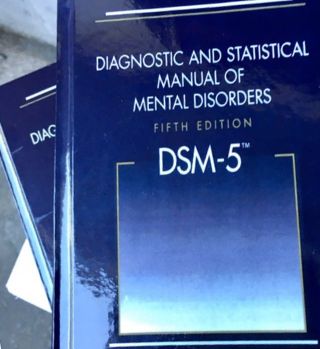Adverse Childhood Experiences
Adverse Childhood Experiences and Physical and Mental Health
Two books discuss how these stressors affect the human body.
Posted March 2, 2023 Reviewed by Michelle Quirk
Key points
- Organized psychiatry rejected evidence that childhood trauma leads to developmental disruptions in 2011.
- Ignoring trauma has led to an overreliance on psychiatric drugs, which are often combined with other such drugs in nonsensical ways.
- Adverse childhood experiences are also a risk factor for a variety of physical disorders.

In his book, The Body Keeps the Score, trauma expert Bessel van der Kolk points out that organized psychiatry in 2011 refused to acknowledge that “childhood adverse experiences lead to substantial developmental disruptions” and added that the idea that it is “more clinical intuition than research-based fact.” Van der Kolk then added, “There is no known evidence of developmental disruptions that were preceded in time in a causal fashion by any type of trauma syndrome" (from the American Psychiatric Association's rejection of a Developmental Trauma Disorder diagnosis, as quoted in the book).
I feel that the last part may be misleading. We don’t have high-caliber causal evidence on the causes of just about any diagnosis in the Diagnostic and Statistical Manual of Mental Disorders. Van der Kolk has a long list of references from the extensive literature on the enduring negative effects of early maltreatment. Adverse childhood experiences (ACEs) are a major contributor to a variety of psychiatric symptoms that are part and parcel of many different psychiatric disorders. Especially the childhood ones like attention-deficit/hyperactivity disorder (ADHD), conduct disorder, and oppositional defiant disorder, as well as many mood and anxiety disorders.
Malignant Polypharmacy
This blindness by the psychiatric community in the United States has led to what is called “malignant polypharmacy”—the tendency of some psychiatrists and psychiatric nurse practitioners to confuse symptoms that appear in different forms within a variety of different psychiatric diagnoses as instead being due to co-morbid (co-occurring) separate conditions. When I was in practice, I would find new patients who were on several different psych medications—sometimes including both uppers and downers simultaneously—because new drugs were added whenever the practitioner noticed additional, seemingly untreated symptoms.
Clinicians had misinterpreted these symptoms as being due to their being indicative of some other psychiatric disorders that were not being addressed by the existing drug regimen. As the author points out, what was really not being addressed is the underlying issues—such as a history of abuse.
Effects of Adverse Childhood Experiences on Our Physical as Well as Psychological Well-Being
In another book, The Deepest Well, pediatrician Nadine Burke Harris discusses in vivid detail how adverse childhood experiences are toxic stressors that impact our bodies biologically and put us at higher risk for a variety of physical, not just psychological, illnesses over the course of our entire lifetime. She points out that this does not only affect those who live in poor neighborhoods but can happen anywhere.
She covers the issue of epigenetics (how the environment turns genes off and on) as well as differentiating the effects of ongoing as opposed to time-limited stress. She zeroes in on the amygdala (the part of the brain that is responsible for fight-or-flight reactions) and how it can inhibit cognitive functioning and the sometimes toxic effect of stress hormones like cortisol.
She also discusses how, in public discussions and meetings, parents can be resistant to various plans to confront ACEs (due to what the author calls “hateration”) for fear that doctors would be stigmatizing their children as being brain-damaged. I think a much bigger fear in the public is stigmatizing parents. As I often write about, you cannot call any type of parenting a problem these days anywhere without being attacked.
Effects of Ongoing Adult Relationships With Perpetrators of Adverse Childhood Experiences
Harris and van der Kolk do not address the question of whether brain changes caused by ACEs are at least partially reversible were it not for continuing reinforcement of the trauma throughout the lives of the subjects of this literature. This question lurks behind many of van der Kolk’s case examples and within the literature that the author quotes. (This may often include the role of grandparents in, unintentionally or intentionally, reinforcing problematic parenting practices and marital issues in the parents).
For example, he talks about a case in which a woman continued to blame herself for her father molesting her despite her rational mind knowing full well that this was nonsense. He describes traumatized firefighters who were “desperately trying to protect the system.” As part of a suggestion for criteria for a proposed diagnosis of developmental trauma disorder, he included, “Intense preoccupation with the safety of the caretaker or other loved ones.” He even describes himself as mistakenly thinking that his own parents no longer had a major influence on him!
In other case examples, he omits mention of whether or not the patient still maintained contact with an abusive parent. The closest he comes is a statement on page 210 about a perpetrator "hopefully" not still being around to hurt a traumatized individual.
Despite this to-my-mind major omission, mental health practitioners need to be familiar with the content of both these books.
References
Van der Kolk, Bessel (2015). The Body Keeps the Score: Brain, Mind, and Body in the Healing of Trauma. New York, NY: Penguin Publishing Group.
Harris, Nadine Burke (2018). The Deepest Well: Healing the Long-Term Effects of Childhood Trauma and Adversity. Boston, MA: Mariner Books




